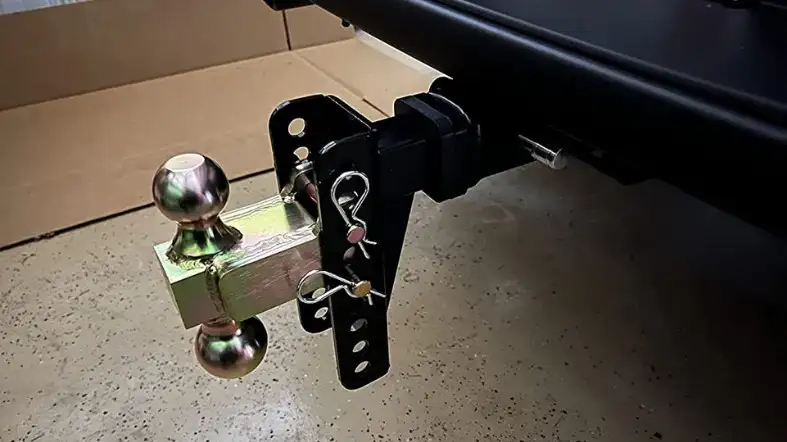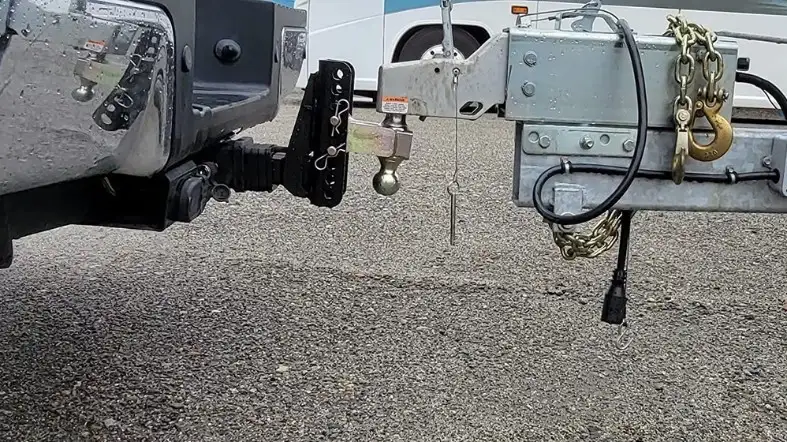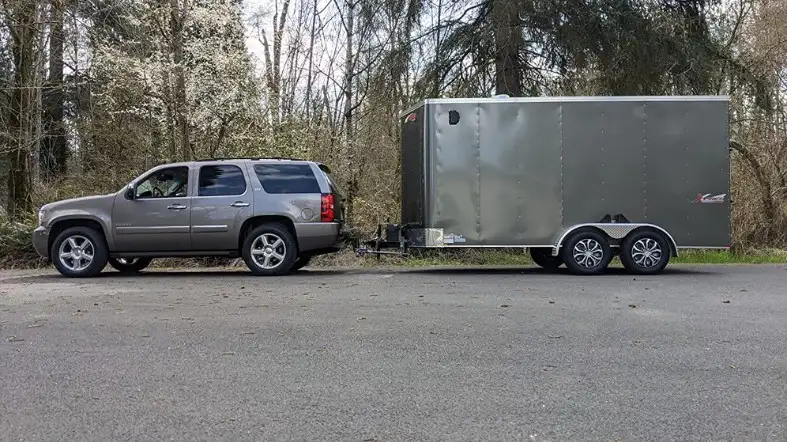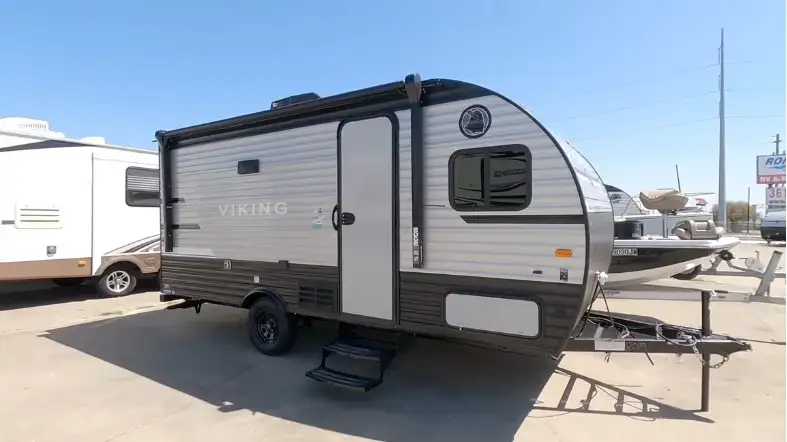There is a lot of debate on whether or not trailer hitches are universal.
Some people believe that they are, while others think that each hitch is manufactured specifically for the vehicle it will be used on.
So, which is it? Are trailer hitches universal or vehicle-specific? Let’s take a closer look at this question and see what the answer might be.
Are Trailer Hitches Universal?
No, trailer hitches are not universal. They are designed to fit specific vehicles and trailer types, and may not be compatible with other vehicles or trailers.
Multi-fit trailer hitches are a great option for those looking for an alternative to custom-fit trailer hitches.
These trailer hitches are designed to be a universal trailer hitch option.

Also, these trailer hitches are designed to fit a wide range of vehicles, making them a more versatile option.
However, it’s important to note that not all multi-fit hitches are created equal.
Some are made with lower-quality materials and have fewer features than their custom-fit counterparts.
Are All Trailer Hitches The Same Size?
No, all trailer hitches are not the same size. In fact, There are five standard trailer hitch sizes: Class I, II, III, IV and V.
Class I hitches have a 1-1/4″ receiver opening and are typically used for smaller trailers such as pop-up campers and small utility trailers.
Class II hitches have a 1-1/4″ x 1-1/4″ receiver opening and are typically used for medium-sized trailers such as boat trailers and small travel trailers.
Class III hitches have a 2-inch receiver opening and are typically used for larger trailers such as fifth-wheel trailers and large travel trailers.
Class IV hitches have a 2-inch receiver opening and are typically used for the heaviest trailers such as large fifth-wheel trailers and commercial trailers.
Last class V hitches have a 2.5” and 3” receiver opening and are typically only used for specialized purposes, such as towing construction equipment.
Knowing which size hitch you need is important because it will determine which vehicles the hitch can be used on.
So, before buying a trailer hitch, it’s important to make sure that it is the right size for your vehicle.
How To Choose The Right Hitch For Your Vehicle
To choose the right hitch for your vehicle, you’ll need to know a few things.
Below we will go over what you need to know to make sure your hitch is compatible with your vehicle.
The first thing you need to know is the weight capacity of your vehicle. This can usually be found in the owner’s manual or on a sticker inside the driver’s door.
Once you know the weight capacity, you’ll need to choose a hitch that has a higher weight capacity.
Next thing you need to consider is the tongue weight of your trailer. This is the weight that is exerted on the hitch by the trailer.
You’ll want to make sure that the tongue weight of your hitch is greater than the tongue weight of your trailer.
Lastly, you’ll need to make sure that the hitch you choose will fit your vehicle.
There are many different sizes and styles of trailer hitches, so be sure to do your research and choose one that will fit your vehicle.
Overall, it is important to consider a number of factors when choosing the right trailer hitch for your vehicle.
By doing your research and using this guide, you can find the perfect hitch for your needs.
Are Trailer Hitches Vehicle Specific?

Trailer hitches are designed to be universal in nature, meaning that they can be easily installed on a wide variety of vehicles.
However, it is important to note that not all trailer hitches are created equal.
Depending on the vehicle and its specific requirements, some trailer hitches may require modifications or adjustments in order to be fully compatible.
For example, larger trailer hitches or those designed for towing heavy loads may need to be installed on a truck or SUV with a stronger suspension system.
And certain types of trailers, such as travel trailers or campers, may require specialized hitches that can be easily attached and detached.
So if you are looking to buy a trailer hitch for your vehicle, it is always best to do your research and talk to an expert before making a purchase.
Because choosing the right trailer hitch can make all the difference when it comes to safely and efficiently towing your cargo.
How Do I Know What Trailer Hitch I Need?
To find the right trailer hitch for your vehicle, you need to have an understanding of the various types and what they are commonly used for.
It is very important to choose the right trailer hitch for your vehicle.
Because there are so many different types and sizes of hitches, you need to make sure that you select the hitch that is designed specifically for your car, truck, or SUV.
There are a few factors that you’ll need to consider when choosing a trailer hitch for your vehicle, including:

Gross Trailer Weight (GTW)
Gross trailer weight, or GTW, is the total weight of a trailer and all the cargo that it is carrying.
This includes the weight of the trailer itself as well as any additional equipment, such as a tow hitch or ball mount, that may be attached to the vehicle pulling the trailer.
GTW is an important consideration when selecting a trailer hitch, as you need to make sure that your vehicle can safely handle the weight of the trailer and its cargo.
Hitch Ball Mount
Trailer hitches are designed to safely and securely connect a trailer to a vehicle.
There are many different types of hitches available, including ball mounts, pintle hitches, receiver hitches, and gooseneck hitches.
A ball mount is one of the most commonly used types of trailer hitch.
It consists of a ball shaped piece of steel that is mounted to the trailer, and a receiver hitch on the vehicle.
The ball mount attaches to the receiver by inserting into it like a puzzle piece.
While each type of hitch has its own unique way of attaching, all hitches are designed to provide a solid connection between the trailer and vehicle while also distributing weight evenly.
Also a ball mount is a great option for those who need to tow heavy trailers. It provides a secure connection while also allowing easy maneuverability and control.
Drawbar Weight (DW)

A trailer hitch is a device that is attached to the rear of a vehicle and allows for the attachment of a trailer.
Trailer hitches come in a variety of sizes and types, depending on the weight and purpose of your trailer.
One important consideration when choosing a trailer hitch is its drawbar weight (DW), or how much weight it can safely handle.
The drawbar weight is important to consider because it will affect how much your vehicle can safely tow.
It is important to carefully consider your vehicle’s capabilities when choosing a hitch, as exceeding the drawbar weight can cause serious damage to your vehicle, as well as putting yourself and others on the road at risk.
Tongue Weight (TW)
The most important factor to consider when choosing a trailer hitch is tongue weight (TW).
TW is the force that the trailer tongue exerts on the hitch. This weight should not exceed the maximum TW rating for the hitch.
It’s important to note that the TW will vary depending on how the trailer is loaded.
For example, if the trailer is heavily loaded in the front, the TW will be greater than if the trailer is evenly loaded.
As a general rule of thumb, the TW should be 10-15% of the GTW.
So, if you’re planning to tow a 5,000 pound trailer, the TW should be between 500 and 750 pounds.
Now that you know the different types of trailer hitches and the factors to consider when choosing a hitch, you’re ready to start shopping for the perfect hitch for your vehicle.
What is the Most Common Trailer Hitch Size?
The most common trailer hitch size is 2-inch diameter. This size is used for cargo trailers, moving trucks, and boats. It is also used for horse trailers and campers.
There are a few reasons why the 2-inch hitch size became the standard for most trailer hitches.
First, it provides enough strength to safely tow heavy loads without adding too much weight or bulk to the vehicle.
Second, 2-inch hitch receivers are very common in North America, so they are easy to find and install if you need to replace your trailer hitch.
If you do not need to tow very heavy loads, or if your vehicle already has a pre-installed 2-inch receiver, then this is likely the best option for you.
However, if you need more strength or plan on regularly moving large items with your trailer, then you may want to consider other hitch sizes that are available.
Some options include 3-inch and 4-inch receivers, which provide more strength for heavier loads.
FAQs
Can I Use A Class III Hitch On A Class IV Receiver Opening?
No, it is not recommended to use a class III hitch on a class IV receiver opening.
Class III hitches are designed for lighter loads, and they may not be able to support the weight of heavy cargo or additional equipment that you attach to your trailer.
Does Hitch Size Matter?
Yes, the size of your trailer hitch does matter. The size of your hitch will determine how much weight and bulk it adds to your vehicle.
As well as how much strength it provides for safely attaching and towing a trailer.
Is Round Or Square Hitch Better?
A round tube is not as noticeable as a square bar and provides a sleeker look.
However, a square tube can be easier to install and offers more strength for heavy loads.
Ultimately, the choice between a round or square trailer hitch comes down to personal preference and what works best for your needs.
Conclusion
Now you know that there are a few important factors to consider when choosing a trailer hitch, including the drawbar weight, tongue weight, and size of the hitch.
Also know that trailer hitch size can vary depending on your needs, with 2-inch hitches being the most common.
When deciding which hitch is right for you, it’s important to carefully consider your vehicle’s capabilities and the weight of the items that you plan on attaching to your trailer.
